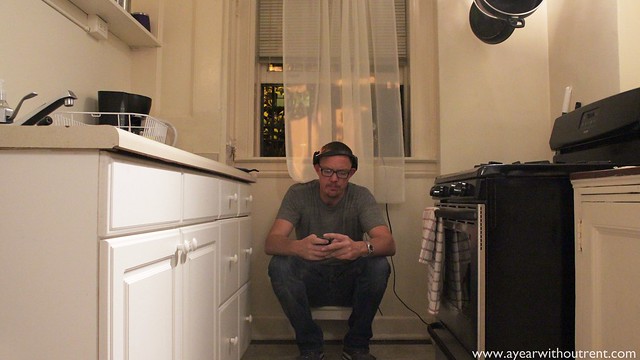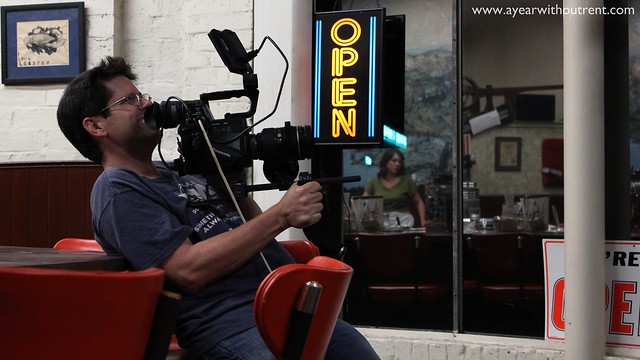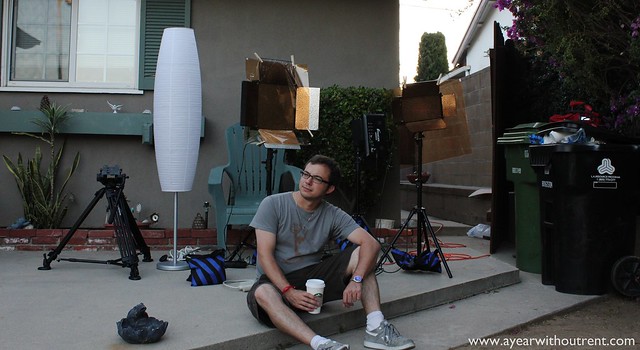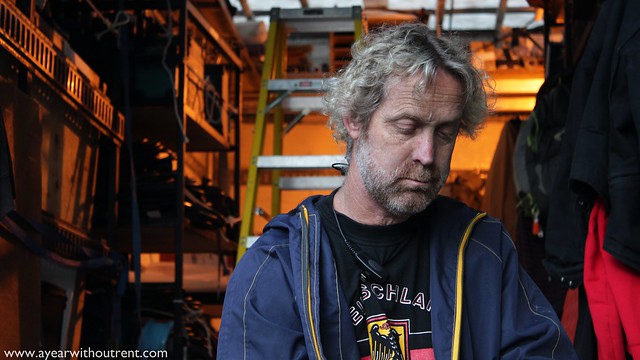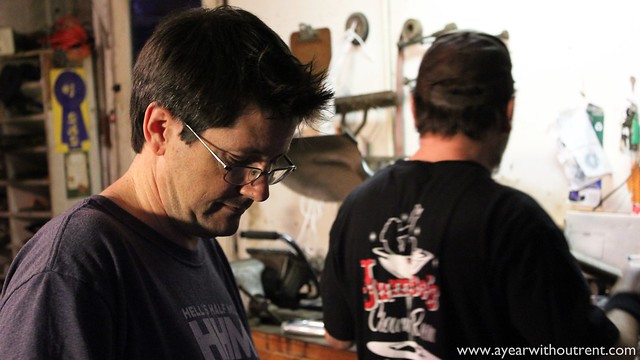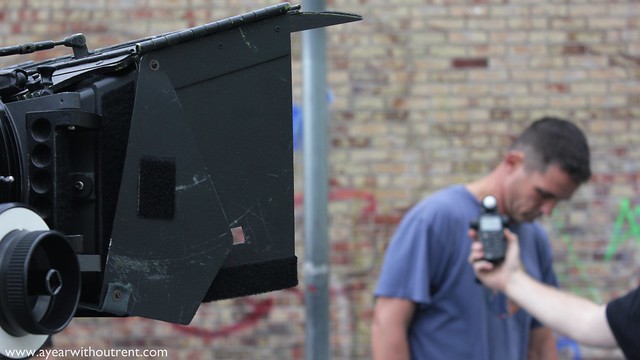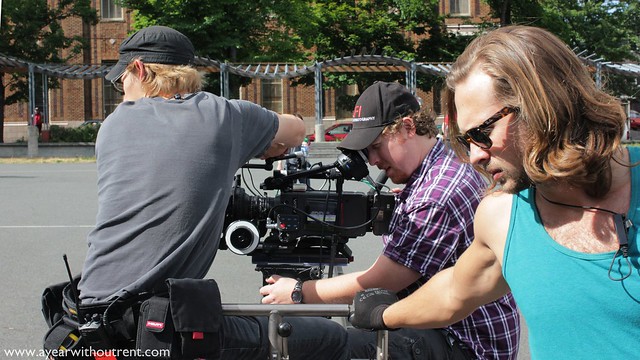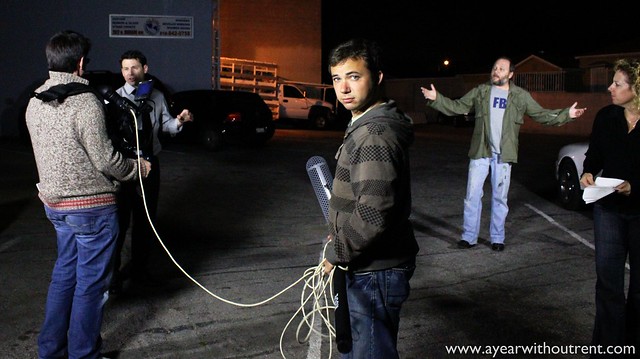 Back to selection
Back to selection
A YEAR WITHOUT RENT, PART 5
If you take a statistics class (or just take your fantasy baseball team really seriously), one of the first things you learn is that trends are largely a myth. When a team like the Red Sox starts the season 2-13, that’s probably nothing more than a few bad breaks strung together. Given enough time, they’ll right the ship. Unless their third starter is John Lackey. Then all bets are off. Our brains are wired to see patterns where none exist, to take statistical noise and turn it into something it isn’t (there’s a joke in there somewhere about movie critics, but I’ll leave it alone).
So when I work two films in a row where the director is also serving as the d.p. and camera operator — does that mean that there’s this great movement brewing on the West Coast? Of course not. Two films out of twenty-something does not make a sea change.
But still, there’s something there, a desire to simplify the wheels of production and make the process leaner and smaller. You see this a lot on productions around the country. Filmmakers either want the crew to be a lot bigger, with all the toys, or a lot smaller. I can’t tell you how many times I’ve heard someone say how great it is when its just five people wandering around, making a movie. It hearkens back to our fond memories of when we were starting out and too dumb to know any better. Plus, the smaller the production, the less likely the cops will notice you, right?
Well this month, I got to do both.
On the small side, I went to L.A. and worked on Paul Osborne’s second narrative feature Favor. It was your classic DIY set with five lights and four C-stands. Only we had one C-stand and three light stands. Quick and dirty in the indie film tradition.
And then, I drove back up to Seattle to work on Matthew Lillard’s directorial debut Fat Kid Rules the World, complete with a whole grip truck full of all the bells and whistles and more C-stands than I could count.
One reason statistical noise is given so much more importance than it should is because it makes for an easy narrative, and writers like easy narratives. It makes their job easier. For example, right now the Red Sox are throwing away their playoff berth in an epic collapse. But they’re still something like 89% favorites to make the playoffs. But 89% doesn’t make a good headline. “OMG! PANIC IN BOSTON!” makes a good headline.
We’re not immune to this in writing about film. When circumstances present you with an easy narrative, you grab it. So let’s look at them in tandem, shall we?
(Right now, you can just imagine Paul Osborne sitting at his computer, thinking, “Oh fuck me.”)
Honestly, I never thought I’d end up on a film like Fat Kid Rules the World. When I put this project together, it never occurred to me that I’d end up on something with an actual budget. I figured that, best case scenario, I’d end up on a film that raised $80,000 or so on Kickstarter, which would still be pretty massive.
Paul Osborne’s Favor couldn’t be more different. It raised a little over $20,000 on Kickstarter. The gear mostly fit in Paul’s car. Craft services wasn’t catered. Hell, there was a day on set where I was the sum total of four different departments.
If Fat Kid Rules the World is Billy Wilder’s The Lost Weekend, then Favor is Edgar Ulmer’s Detour, a pretty brilliant B movie that was shot for nothing back in 1945.
(Let’s be clear that I’m not comparing them in quality, either to each other or the classics. We’re just talking about scale.)
David vs. Goliath.
But that’s not the point. It’s just the easy narrative. The lazy narrative.
I don’t know the actual final budgets of either film, but let’s say that Fat Kid is ten times the budget of Favor. That seems more or less accurate. What does that mean, exactly? Is one that much better than the other? Of course not. Is one that much better run than the other? No.
If there’s one thing I’ve learned so far in A Year Without Rent, it’s that the budget matters less than you think. Sure, more money is always nice. But indie filmmaking comes down to a lot of things you can’t buy.
The number one thing? Passion.
I’m sure it’s possible to make a film you aren’t passionate about, but I can’t imagine why you would. It’s a really fucking hard thing to do and the passion and determination of the director is very often what’s going to pull a production through. And that manifests itself in a lot of different ways. It might show up in Paul Osborne soldiering on behind the camera after twisting his ankle. Or maybe you’ll hear it in Matthew Lillard’s voice during a toast when he talks about how he wants to make a “good fucking movie”.
